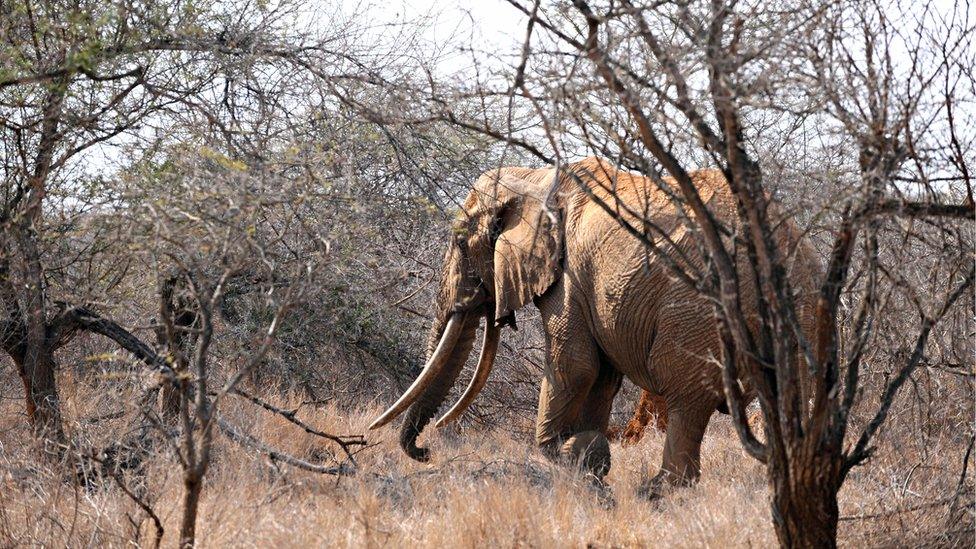Satao, one of the last 'giant tusker' elephants, killed in Kenya
- Published

One of the park's elephants, photographed in 2009. It takes decades for ivory tusks to grow to "giant tusker" size
A rare African elephant - one of the continent's oldest and largest - died in a suspected poaching incident, a conservation group has said.
Satao II, a 50-year-old so-called "giant tusker" was found dead near the Tsavo National Park border.
Conservationists at the park believe he may have been killed by a poison arrow, although the cause of death has not yet been confirmed.
Satao was named after another giant tusker killed by poachers in 2014.
There are now fewer than 30 African "big tuskers" - adult bulls with ivory large enough to brush the ground - in the world.
"I am pretty gutted really," Richard Moller, head of the Tsavo Trust, told AFP.
"This particular elephant was one that was very approachable, one of those easy old boys to find. Many of the others are much more difficult to see.
"He has been through lots of droughts and probably other attempts at poaching."
A team from the park and Kenyan Wildlife Service recovered the animal's enormous ivory tusks intact, before poachers could claim them, the park said.
One weighed 51.5kg, (113.5lbs) and the other 50.5kg.
His carcass was discovered in January during routine aerial surveillance of the 25,000 sq km national park, but was only announced Monday.
After the discovery, the park's teams tracked an "elephant poaching gang" deep into the park, and two poachers were arrested.
Among the items found with the poachers were three bows and 12 poisoned arrows, as well as an AK47 rifle, the park said.
"Although this is a very sad loss in everyway, we can take some positive from this in that Satao's carcass was indeed found with the ivory intact, and recovered before it could fall into the wrong hands and further fuel the illegal ivory market," the Tsavo Trust said.
"More importantly, this poaching gang... has been broken for ever."
- Published30 December 2016
- Published31 August 2016